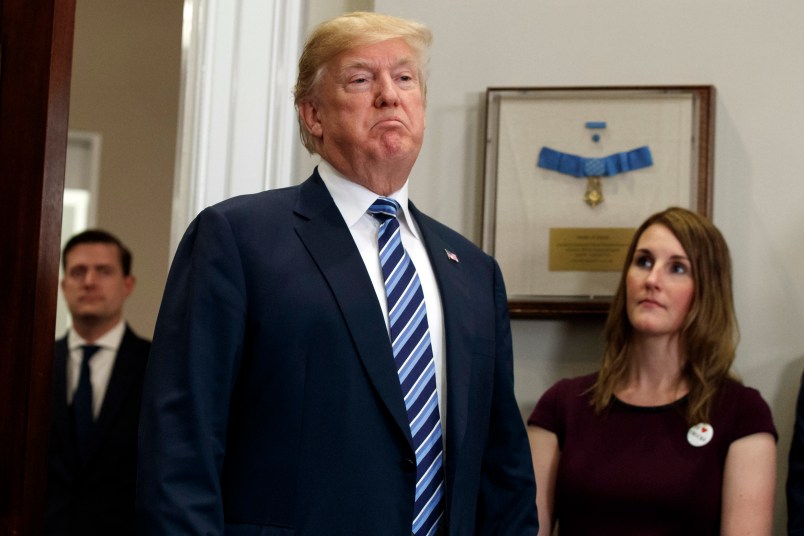A proposed rule published by the Trump administration Thursday would make it much easier for small businesses, unions, and self-employed individuals to form their own health care markets free from many of the regulations and consumer protections that govern the Affordable Care Act’s plans—shrinking and weakening Obamacare’s individual and group markets.
While the Department of Labor assured the public in a press release Thursday that the new, cheaper plans “cannot charge individuals higher premiums based on health factors or refuse to admit employees to a plan because of health factors,” health care experts and industry leaders oppose the move, warning that the plans may not cover basic health care services and have in the past defrauded their customers.
The proposed rule would allow separate employers—in the same geographical area or in the same industry across state lines—to band together to form an Associated Health Plan (AHP). The Department of Labor estimates that these less-regulated plans could cover up to 11 million people in the years to come.
“We are concerned that this could create or expand alternative, parallel markets for health coverage, which would lead to higher premiums for consumers, particularly those with pre-existing conditions,” America’s Health Insurance Plans, the trade group for the health insurers, said in a statement earlier this year. “We urge state insurance regulators to take action to protect consumers in your states.”
One of the top areas of concern is essential health benefits—the provision of the Affordable Care Act that forces almost all health insurance plans to cover basic services like emergency room visits and prescription drugs. The new association health plans would be significantly cheaper because they do not have to cover essential health benefits. And while the plans are nominally barred from denying coverage to a person based on a pre-existing condition, they could in practice discriminate by not covering the services such a person would need.
And because the rule was drafted in the fall of 2017, before Republicans axed Obamacare’s individual mandate in their tax bill, it ironically includes a section noting that the presence of the now-repealed individual mandate will help mitigate the damage and expected premium increases caused by the new rule.
“Individual markets may be more susceptible to risk selection than small group markets, as individuals’ costs generally vary more widely than small groups’,” the rule states. “The ACA’s requirement that essentially all individuals acquire coverage and the provision of subsidies in Exchanges may reduce that susceptibility, however.”
A footnote added below that section notes that the mandate will be eliminated in 2019, and admits: “Such elimination might prompt some individuals who would have joined AHPs to remain uninsured instead.”
Following a public comment period, the new rule could go into effect as early as this summer.
Read the full proposed rule below:







Best use “Republican” rather than “Trump” in articles like this. “Trump Administration” is an oxymoron. Trump is clueless about policy. He has appointed right-wing Republicans, the main stream of that party. They can do whatever they want.
Here we go again. Let’s rebuild the shitty, disastrous market that was health insurance before the ACA. It amazes me that people’s memories are this short and this clueless - let’s get lots of plans out there where people cannot afford any services at all because of the giant copays and coinsurances and the lack of any real coverage. Whoopee! Ain’t capitalism great! Freedom!
Trump: “Kill, kill, kill more sick people. . . . I am still not satisfied!”
They are purposefully destroying health care in the US, about 20% of GDP.
This is explains why a dude who’s been through bankruptcy a half dozen times has been through bankruptcy a half dozen times.